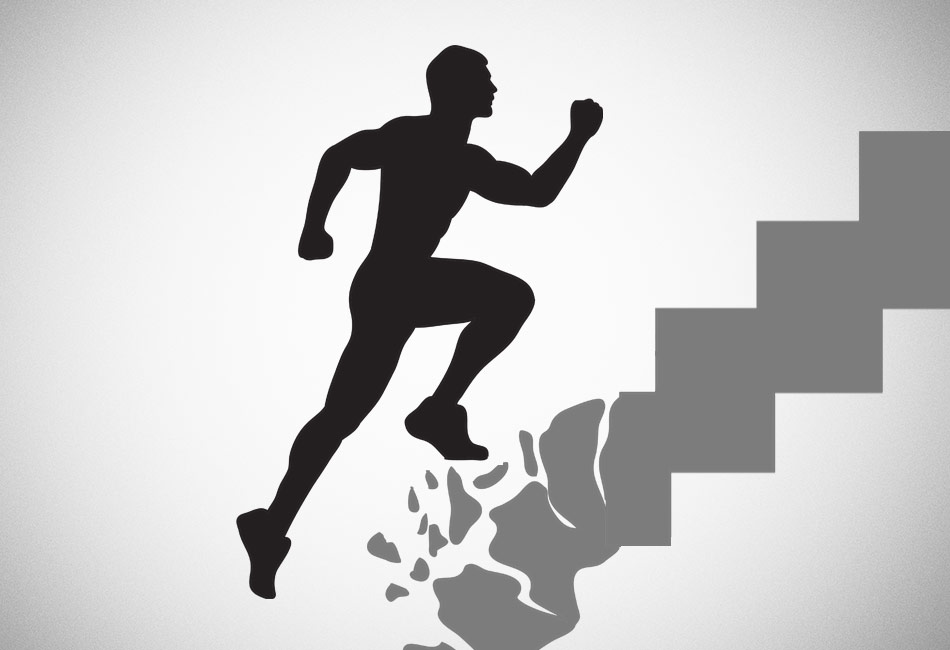When you are putting your body through its paces what you don’t do is every bit as important as what you do actually do. The amount of rest you get, the recovery time you allow and what you do to make sure you do not overtrain are every bit as important as the exercise routines you choose and the discipline you apply, when you do them.
There are a great many myths regarding the importance of rest, recovery time and if it is possible to overtrain. The thing is that there is a strict logic behind each of these that is governed by the body’s physiology and the biology of how it works so it is worth examining each of these in turn.
Rest
Whether you are training to build muscle, increase speed or get endurance the one thing that is guaranteed to happen is your body will undergo physical, neurological and chemical changes. The body is an adaptive machine. The moment it faces consistent pressure to change it begins to do so. The majority of this change happens while we sleep. Muscle building (and repair), skin regeneration, neurological streamlining, blood detoxification and even immune system repair are just some of the activities that happen while we are asleep.
It is important therefore to get as much good quality sleep as possible when we exercise. Muscle growth and bone strengthening can happen during rest periods (like when we are crashing on the sofa) not just during sleep, although they accelerate when we are asleep, but all the other important functions require that we do fall asleep before they even get started.
Research shows that the importance is more on quality of sleep rather than length. So a five hour sleep that is deep, even and relaxing is more beneficial than eight hours where you toss and turn every few minutes.
On the question of when is it best to exercise before sleep there is no conclusive evidence. America’s National Sleep Foundation suggests that you should exercise at least three hours before going to bed, but that is a guideline intended to help you slowly wind down as you get to bed time, rather than a hard and fast rule,
Basically exercise when you can, provided it does not affect the quality of your sleep and do make sure you get some quality sleep when you exercise as that’s when many of the gains you are looking for, begin to happen.
Recovery
Every person who has lifted weights in a gym will tell you that recovery time is important and days when you do nothing have to be factored in. This is because when you isolate and exercise muscle groups disproportionally to what the load on the other parts of the body is (i.e. the traditional leg days, arm days etc routine) you do need to give time to the muscles to recover.
Recovery needs rest (as in doing nothing) and good quality sleep. While you do need to sleep the rest part of recovery is not as useful the moment you start using your entire body to exercise. Bodyweight exercises spread the load over the entire body and force muscle groups to work in harmony, together. This means that active recovery, when you simply tone down the load to the body actually leads to better results and helps in building muscles and strengthening bones, faster.
Because the body is an adaptive machine it means that it does not just adapt to stress loads by becoming stronger, fitter and faster but it also adapts to resist change so that an initial response of strengthening can quickly plateau and provide no further gains unless it is challenged further.
Any body building or athletic guide that still goes on about "rest days" and cites recovery and muscle growth as the reason for that is about as valid as a magic spell. If the body does not work it will not change. As Jordan Rap says "less is less" not more and indeed there has not been one single scientific study of elite athletes that has marked their "rest phase" as the reason for their exceptional performance. If anything each athlete studied has found ways to reduce recuperation time and get in more training time.
Even bodybuilding sites (usually the worst offenders when it comes to propagating the "you need rest days" myth) are beginning to get wise to the fact that you need to train as much as possible in order to see gains. Crossfit coaches are also making the same point, particularly where recovery periods are concerned with days of lower intensity playing the role of "active recovery" days. Studies that have used athletes to see how to best train and recover, have shown that when recovery is active and lower intensity, it allows for greater gains to be made in strength and endurance, faster. This is the so-called supercompensation response.
There is no getting away from the fact that we all do need some recovery time. This is something that Darebee takes into account with every program we create that has built-in active recovery time in it. The issue associated with discussing it is that how much time we need to recover is always subjective and based upon the individual's fitness level and the intensity training level. So, let's take an "average person" who does a Darebee program at Level I. He would actually lose whatever gains have been made if we used the conventional (and wrong) approach and introduced passive recovery days where nothing happens. In addition, depending on the level of intensity and the fitness level of the individual different recovery strategies are required and none of them use inactivity. Some are just a little more sleep, others may be a massage, hot or cold showers or light running. The approach is further backed by other scientific studies that have looked exclusively at recovery modalities which show that they work way better than inactivity. As a matter of fact when it comes to choosing between active rest (when you do something lighter) and passive rest (where you do nothing at all) sleep is the most important passive rest you can have.
Overtraining
It is more likely that we will end up not training enough than overtrain. Because the body adapts pretty quickly we can find ourselves just a couple of weeks into a training regime with all changes having stopped and no visible change happening to us at all, despite the fact that we continue to do whatever routine we started off with.
This is why it is key to constantly challenge the muscles. Indeed, athletes who specialize in specific sports (like sprinting, boxing, martial arts, gymnastics, running etc) are constantly trying to be as inventive as possible in their training forcing the body to work in new ways just so they do not get into the plateau stage where nothing at all happens.
With all this in mind, the real question is, is it possible to overtrain?
As it happens yes it is. Overtraining occurs not because of too much training but because of insufficient time to recover and adapt. Whether we are getting too little sleep or not enough rest what happens during overtraining is that the muscles do not have sufficient time to recover, repair and rebuild. As a result the body gets confused and is not quite sure what to build for. Someone who is training for speed for example and does not give his muscles enough time to recover forces the body to now work like it’s training for endurance. This confusion leads to the sense of diminishing returns, also known as “burnout” that even experienced athletes report sometimes. During that phase we can end up training harder and harder, for longer periods of time and all we see are drops in performance and no visible improvements in the body’s physiology.
The easiest way to avoid overtraining is to keep a detailed diary of everything we do in our training and make sure we are getting sufficient sleep to help us recover and have to odd light day when active recovery can set in.
The Bottom Line
- The body needs challenging work to physically change and make gains.
- Rest is not working. You lose ground.
- Sleep is the best passive rest phase you can have.
- Active rest (where you reduce workout intensity or substitute a different, lower-intensity exercise) work best for muscle recovery.
Darebee programs are designed to give you results irrespective of the level of fitness you are at. All you have to do is follow the program. They are therefore carefully created in a way that challenges the body and forces it to physically adapt. You cannot overtrain from a single Darebee program. Obviously, you can overtrain if you keep on piling other training (or other programs) on top of that.











